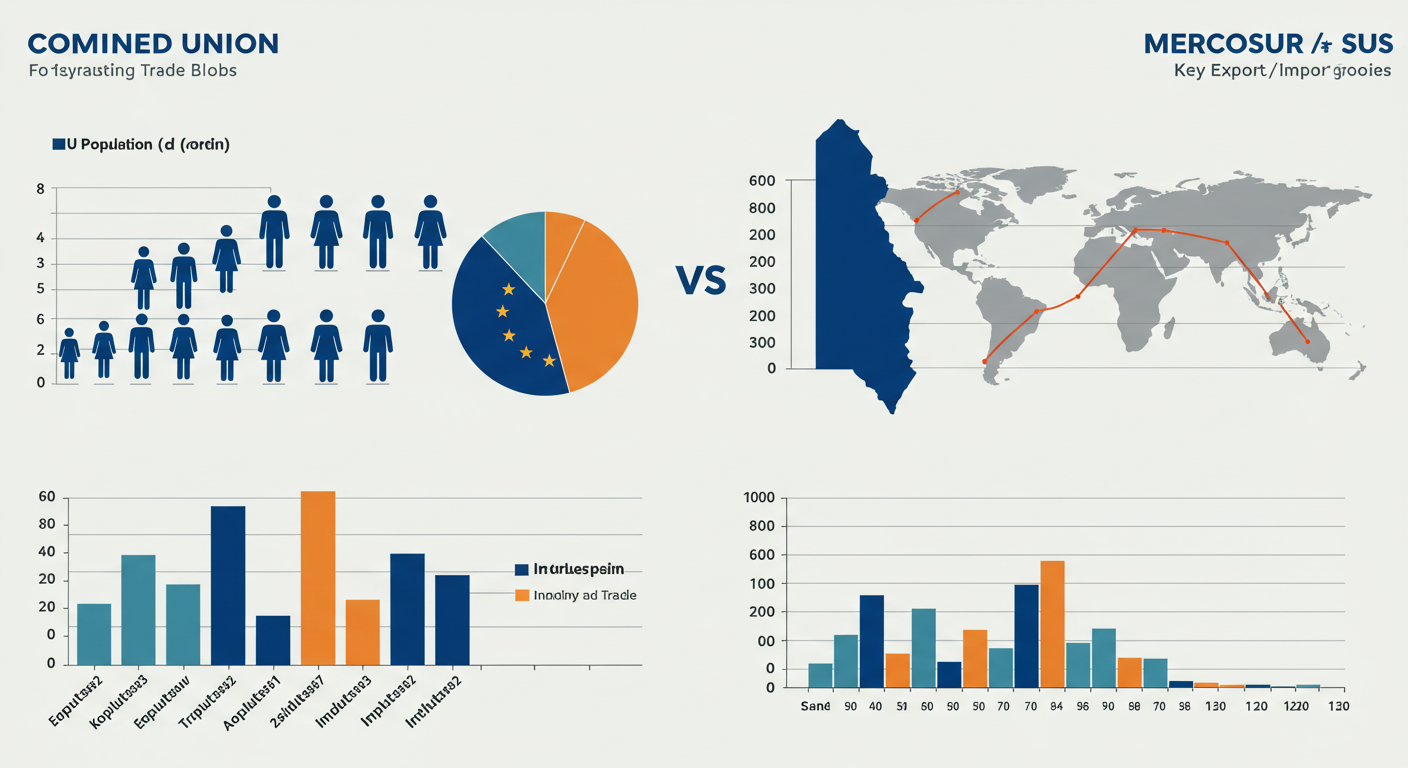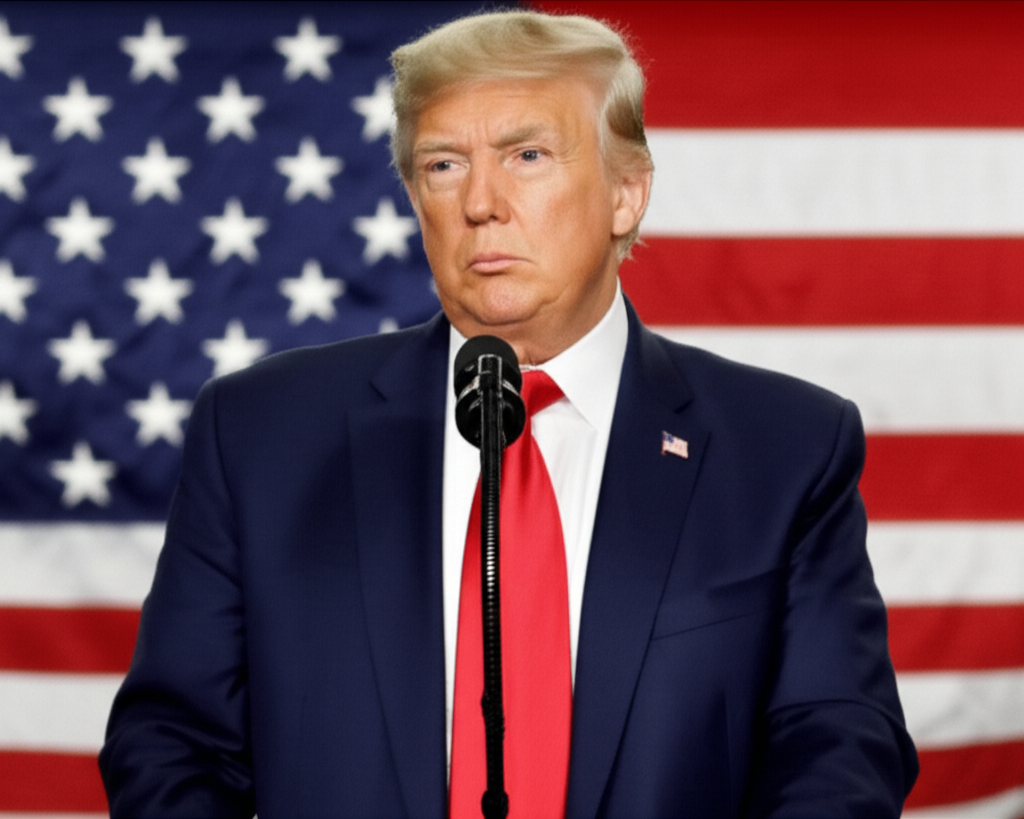The EU-Mercosur Deal: Can a New Regulation Appease Europe’s Farmers?

For over two decades, the EU-Mercosur trade deal has been a tantalizing but elusive prize for diplomats. Poised to be one of the world’s largest free-trade agreements, it promises vast economic benefits. Yet, it has stalled time and again, largely due to fierce opposition from a critical constituency: European farmers. Now, amid continent-wide protests and growing political pressure, the European Commission has put a new proposal on the table—a specific regulation designed to shield the very farmers who feel most threatened. This article analyzes the new proposal and the central question: is it enough to bridge the divide over the EU Mercosur trade deal for farmers?
A Trade Deal Two Decades in the Making
First, what is the EU-Mercosur agreement? It is a proposed free-trade deal between the European Union and the Mercosur bloc, comprising Brazil, Argentina, Paraguay, and Uruguay. Collectively, this represents a market of over 780 million people, making it a monumental economic partnership. The goal is to slash tariffs on a wide range of goods, streamline regulations, and boost trade in everything from cars and machinery to services and agricultural products.
Negotiations began in 1999, and while a political agreement was reached in 2019, the path to final ratification has been blocked. The primary obstacles have been strong concerns over environmental protections—specifically deforestation in the Amazon—and the deal’s profound impact on European agriculture, a sector heavily regulated and supported by the EU’s own policies.
Why European Farmers Are Sounding the Alarm
The opposition from Europe’s agricultural community is not abstract; it is rooted in concrete fears about economic survival and fair competition. As seen in the recent farmer protests across Europe, producers feel they are being put at a severe disadvantage.
Their primary concerns include:
Unfair Competition: EU farmers must adhere to some of the world’s strictest standards for environmental protection, animal welfare, and food safety, which are enshrined in policies like the understanding the Common Agricultural Policy. They argue that Mercosur agricultural producers operate with lower standards and production costs, allowing them to export products like beef and poultry at prices that could cripple EU producers.
Price Depression: The introduction of large new import quotas for sensitive products is expected to flood the market, driving down prices for domestic goods and squeezing already-tight profit margins for family farms.
Environmental Double Standards: There is significant concern that the deal incentivizes agricultural practices in South America linked to deforestation and other environmental harms, undermining the EU’s own climate goals. Farmers question why they are asked to adopt costly green practices while the EU simultaneously plans to import goods produced under less stringent environmental rules. This debate highlights the importance of environmental standards in trade.
Product Category Key EU Farmer Concern
Beef Competition from large-scale Brazilian and Argentinian ranching with lower land and labor costs.
Poultry Differences in animal welfare standards and use of antimicrobial treatments.
Sugar & Ethanol Potential for a surge in imports to undercut the EU’s sugar beet industry.
The European Commission’s Proposed Solution: New Safeguards
In direct response to these deep-seated concerns, the European Commission has tabled a new regulation. This isn’t just a promise; it’s a concrete legal mechanism designed to act as a safety net. The core of the proposal is the creation of “autonomous safeguards.”
So, how would they work? The regulation would establish a monitoring system for imports of the most sensitive agricultural products from Mercosur countries. If import volumes surge past a certain threshold and begin to cause “significant market disturbance” for EU producers, the Commission could unilaterally and swiftly take action. These actions could include:
Suspending preferential tariffs: The lower import duties agreed upon in the deal could be temporarily removed.
Introducing tariff-rate quotas (TRQs): Limiting the volume of a product that can be imported at a lower tariff rate.
Pausing imports entirely: In extreme cases, a temporary ban on the specific product could be enacted.
This mechanism is designed to be faster and more decisive than standard WTO safeguards. It gives the EU a tool to react quickly without needing to prove intent to harm, only market disruption. The Commission hopes this provides a credible guarantee that the domestic market will not be sacrificed for the sake of the broader trade agreement.
Will These Measures Be Enough? A Critical Analysis
The proposal has received a lukewarm reception. While a step in the right direction, major farmer organizations like Copa-Cogeca remain skeptical. Their leaders argue that these safeguards are reactive, not preventative. They only kick in after the damage to farmers’ livelihoods has begun. The preference for many in the agricultural sector remains “mirror clauses”—a requirement that all agricultural imports meet the exact same production standards as EU domestic products.
Furthermore, the political will to trigger these safeguards will always be tested. Activating them would inevitably cause diplomatic friction with Mercosur partners. Proponents of the deal argue that the risk of market disruption is overstated and that the new safeguards provide a robust insurance policy. They contend that focusing solely on agriculture ignores the deal’s massive benefits for other EU sectors, such as manufacturing and automotive.
The Road Ahead: Ratification Remains Uncertain
This new regulation is a critical piece of the puzzle, but it does not guarantee the deal’s passage. The agreement requires unanimous consent from all 27 EU member states for ratification. Key agricultural powerhouses like France, Ireland, and Austria have long expressed strong reservations. They will need to be convinced that these safeguards are not just window dressing but a powerful and reliable tool to protect their rural economies.
Moreover, the EU has tied the deal’s finalization to concrete, verifiable actions from Mercosur countries on their environmental commitments, particularly those under the Paris Agreement. The political climate in both blocs will ultimately determine if this 20-year negotiation finally crosses the finish line.
Conclusion: A High-Stakes Balancing Act for the EU
The struggle over the EU Mercosur trade deal for farmers is a microcosm of the central challenge facing the EU today: how to champion free trade and global partnerships without undermining its own strategic sectors and high standards. The newly proposed safeguard regulation is the Commission’s most direct attempt yet to solve this conundrum. Whether it will be perceived as a genuine shield for farmers or a political fig leaf will determine the fate of one of the most ambitious trade agreements in modern history.
For ongoing coverage and deep dives into the policies shaping our world, subscribe to Global Trade Watch for in-depth analysis of trade policies and their global impact.
FAQ
1. What is the EU-Mercosur trade deal?
It is a proposed free-trade agreement between the European Union and the Mercosur bloc (Brazil, Argentina, Paraguay, Uruguay). If ratified, it would be one of the largest trade deals in the world, covering a market of over 780 million people.
2. Why are European farmers against the Mercosur deal?
Farmers are concerned that the deal will lead to unfair competition from Mercosur imports produced with lower environmental, animal welfare, and safety standards. They fear this will drive down prices for their products, particularly for beef, poultry, and sugar, threatening their livelihoods.
3. What new protection is the EU offering its farmers?
The European Commission has proposed a new regulation creating “autonomous safeguards.” This would allow the EU to quickly limit or apply tariffs to sensitive agricultural imports from Mercosur countries if they cause a significant disruption to the EU market.
4. Will the new EU regulation stop the farmer protests?
It is unlikely to stop them entirely. While it addresses some concerns, major farmer unions argue the measures are reactive and do not guarantee fair competition. They continue to advocate for “mirror clauses” that would require imports to meet the same standards as EU products.
5. What are the main products affected by this trade deal?
The most sensitive agricultural products for the EU are beef, poultry, sugar, and ethanol. For Mercosur, key exports to the EU would also include soybeans and coffee. The EU primarily aims to export industrial goods like cars, machinery, and chemicals.
6. Has the EU-Mercosur deal been ratified?
No. As of late 2025, the deal has not been ratified. It requires the unanimous approval of all 27 EU member states, and several countries, including France and Austria, still have significant reservations.
7. How does the deal relate to the environment and deforestation?
A major point of contention is the potential for the deal to increase deforestation in the Amazon rainforest by encouraging the expansion of cattle ranching. The EU has stated that the deal’s implementation is contingent on Mercosur countries upholding their commitments under the Paris Agreement on climate change.



